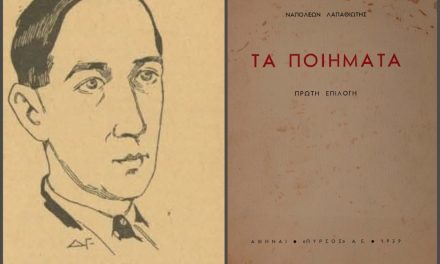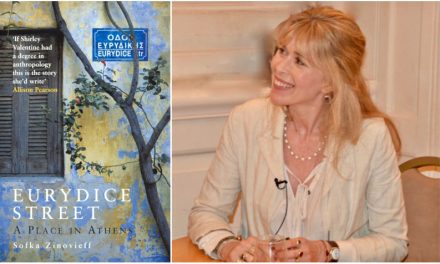Born in Stefanesti-Ilfov-Romania in 1949, Elena Lazăr graduated from the School of Classical Languages of the University of Bucharest. She has worked as an editor for two important state publishers (Univers Publishers, Encyclopaedic and Scientific Publishing House) (1972-1999). Since 1991, she is the owner and director of the Romanian publishing house OMONIA, which consistently promotes Modern Greek literature in Romania. She is a founding member and vice-chairman of the Romanian Society of Greek Studies, vice-chairman of the Romanian branch of the International Society “The Friends of Nikos Kazantzakis”, member of the Romanian Writers’ Union (2005), and an Honorary member of the Hellenic Authors’ Society.
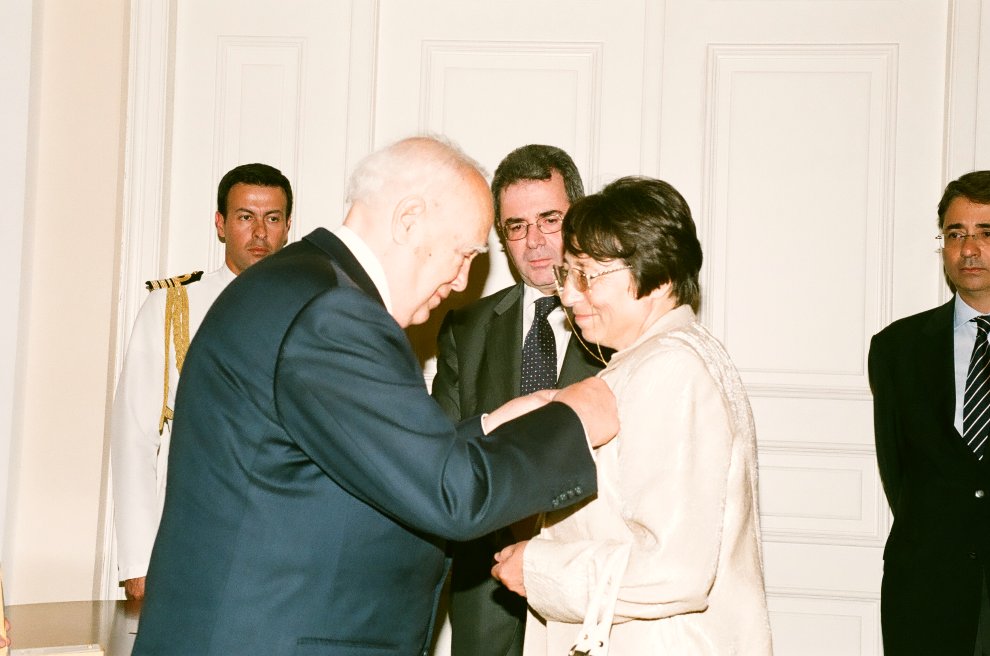
She was awarded prizes for translation in Greece (1994, 2020) and Romania (1994, 2003, 2018), and named Ambassador of Hellenism (Athens, 2005) and Officier de l’Ordre de la Bienfaisance (2011). She has translated 66 works of Modern Greek literature: essays, short stories, novels (Grigorios Xenopoulos, Angelos Terzakis, Nikos Kazantzakis, Tasos Athanasiadis, Galateia Saranti, Ioulia Iatridi, Eleni Ladia, Nikos Themelis etc.) and poetry (Complete works of C. P. Cavafy, 2 vols., Kostas Karyotakis, Michalis Pieris, Antonis Fostieris a.o.). She is the author of nine books: Panorama of Modern Greek Literature (1987, the second edition 2001), Panorama of Cypriot Literature (1999), Masterpieces of Modern Greek Literature (2003), The Greek Letters in Romania.1837-2005 (2005) etc., and has published over 100 articles concerning Greek Letters in the Romanian literary press.
For more than 30 years, Omonia Editions have decisively contributed to the promotion of Greek literature in Romania. Tell us a few things about the publishing house, its story and its major work.
Omonia Editions was founded in 1991, in the wave of excitement following the change of regime and the fall of communism. At that time, 4500 (!) publishing houses were founded – which speaks for itself about the Romanians’ thirst for communication with world culture. Now there are about 800 publishing houses and fortunately Omonia managed to continue its activity, despite the adversities of the transition period, despite the fact that there is no recipe for “how to become a capitalist without capital”. Our only capital in the beginning was the translations of Greek literature that were waiting to be published.
In today’s publishing landscape, Omonia is the only publishing house in Romania, and at the moment the only one in Central, Eastern and South-Eastern Europe, whose main purpose is the promotion of Greek Letters in a country where Hellenism feels at home. In the Romanian book market, Omonia is the only publishing house that exclusively publishes translations of modern Greek literature and books (by Greek, Greek-Cypriot, Romanian and foreign authors and researchers) about Greece, Cyprus and Hellenism in Romania. Our effort focuses on introducing the Romanian readership with the leading intellectual creations of a neighboring culture. Seeking to expand the range of its activities, since 1999 Omonia created a series of books titled “LIBRARY OF NEW GREEK LITERATURE”, offering readers masterpieces of Greece and Cyprus not only in the field of literature, but also in the field of history, philosophy, fine arts, etc.
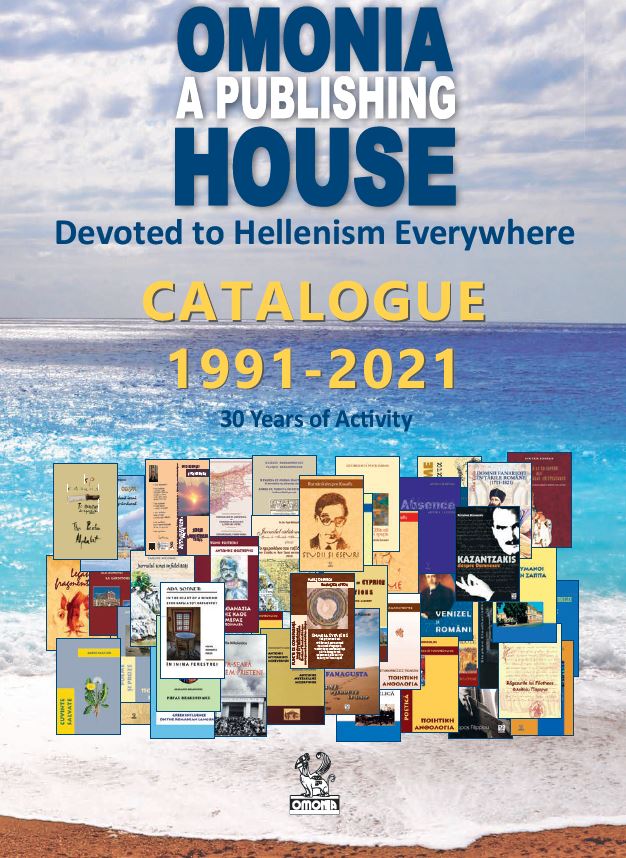
Ηοw did your personal involvement with Greek language and culture start? What remains your driving force so many decades later?
As a classical philologist, my desire to learn about the evolution of ancient Greek was natural, although, in Ceausescu’s time, it was a utopia to have dreams of travel and such. But fate smiled on me in the summer of 1976 when I won a scholarship (by sending a letter – in ancient Greek, of course! – of 2000 words on the subject of “why I want to visit Greece”) by the Ministry of Culture and Science (the minister at the time was K. Trypanis).That was my first contact with modern Greek and from then on, I decided to learn it properly. Fortunately, on the way back I found the Grammar of Triantafyllidis in the library (I have copied it by hand!) and with its help I tried to read and translate The Purple City (Menexedenia Politeia) by Angelos Terzakis and others were soon to follow. All these 47 years my life have been identified with Greece, with Greek Letters, with their history. To such an extent that I can say, without exaggerating, that Greek Letters are my second home, the home of my soul.
As for the second part of your question, I should point out that for the Romanian translator or neo-Hellenist there are so many priorities to motivate us that we cannot lay down our arms. We must continue the rich tradition that unites us and keep Romanians’ interest in Greek Letters strong. Bearing in mind that several works of Greek literature (such as the Filotheou Parerga by Nikolaos Mavrokordatos or the Lyrics of Athanasios Christopoulos, the new Anacreon, as he is known), were born in our area.
Tell us a few things about the book titles Omonia has published over the years. What is to be expected in the foreseeable future?
Ιn its 32 years of operation, Omonia has published a total of 300 books. 130 among them are translations of modern Greek literature. The translations published under the auspices of Omonia constitute about two-thirds of all translations of Greek works published in Romania during the last three decades. All the main literary genres are present each with its major representatives. Prose comes first, followed by poetry and essays. Bilingual editions of Greek and Cypriot poets hold a special place. Our bilingual editions are a useful course/translation tool, encouraging readers/users to find themselves other, better solutions for each verse.
In the “Library of Modern Greek Literature” series one may find classics such as Kostis Palamas or C.P. Cavafy, Kostas Ouranis or Kostas Karyotakis, Georgios Vizyinos or Grigorios Xenopoulos. The generation of the 1930s is richly represented, with Karagatsis, Venezis, Petsali-Diomidi or Seferis (with his nove lSix Nights on the Acropolis) but also with Engonopoulos or Empirikos. The most translated author in Οmonia, I would say the emblem of our publishing house, is Cavafy (he holds the first position in the whole of Romania as well), with 13 publications. Cavafy is also the first Greek author whose Collected Works were published in Romanian and this is a unique publishing project for which we are proud. Αnother successful venture of ours is an album titled The Poetic Alphabet of Cavafy which constitutes a unique case in the international bibliography of the Alexandrian poet. 24 poems (one poem for each letter of the Greek alphabet) by Cavafy are presented in 12 languages (even in Latin!), the first of which is Greek. The edition, which was published with the support of the great benefactor Aikaterini Sofianou, is the culmination of our activity – it was presented both in Athens (at the Theocharakis Foundation) and in the Library of Alexandria, the birthplace of the poet.
As for future plans, I should mention an edition dedicated to a personality who distinguished himself in the history of Romania in the 19th century, but is also known in Greece. He is the initiator and founder of Arsakeio. The publication will be bilingual, so that it is accessible to Greek experts and readers.
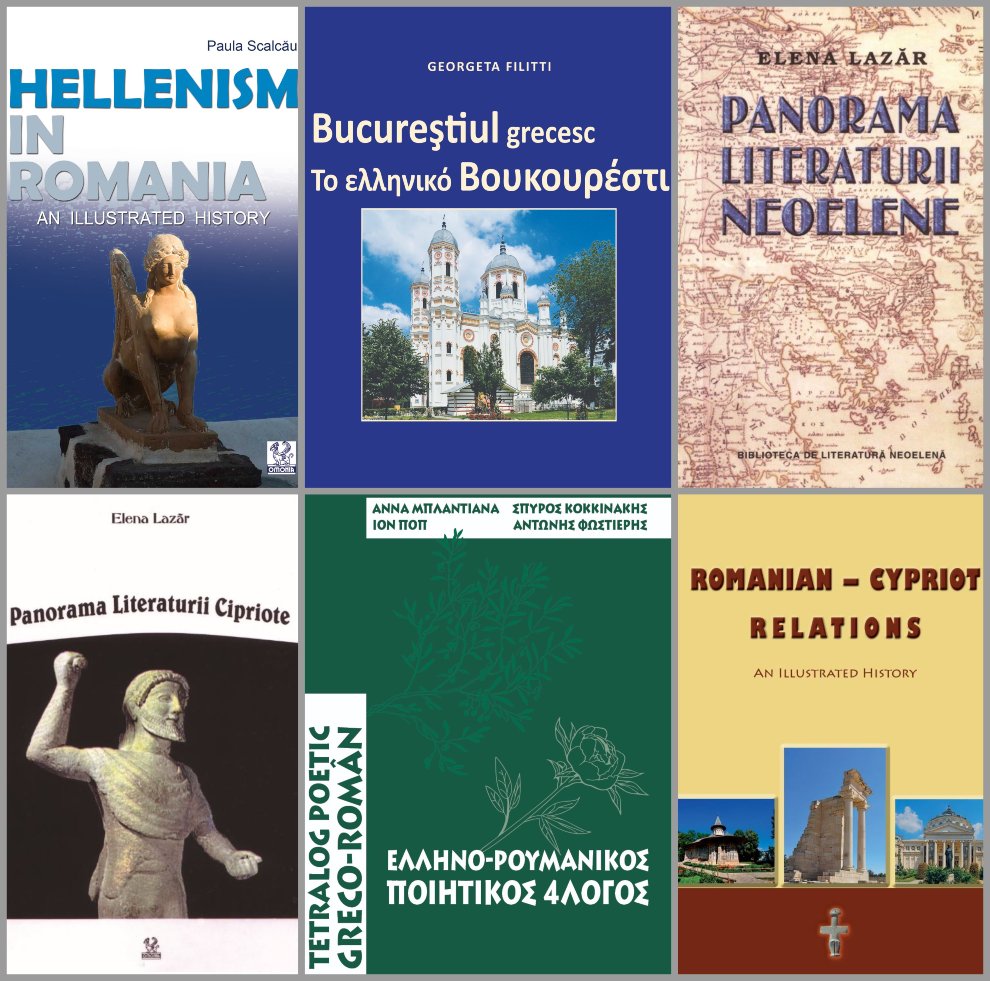
What is that makes Greek literature appealing in Romania? What do Romanian readers opt for and how have their preferences evolved during the years?
An important chapter of Greek literature has, as already mentioned, its roots in the area of today’s Romania. For a period of two centuries, there has been a symbiosis of Romanian and Greek literature, a fact that significantly contributes to how consistently well-received Greek literature is by Romanian readers. The Greek press (in the 19th century, 31 Greek newspapers were printed and circulated in various Romanian cities) also played an important role in the promotion of modern Greek literature in the country. The two cultures with their respective literatures have always been in dialogue, a fruitful dialogue with various interactions awaiting researchers from both sides – the conclusions of their research will be among the most eloquent, I assure them. A dialogue that owes a lot to the translations made over the years. The most translated Greek authors are poet C.P. Cavafy (his first poems were translated into Romanian in 1939!) and prose writer Nikos Kazantzakis, a friend of the Greek-Romanian-French Panait Istrati.
Which are the main challenges you have been faced with all these years regarding the publication of Greek literature in Romania? How did you respond to these challenges?
There were indeed many challenges, from the selection of the book to be translated, bureaucratic hurdles, finding the most suitable translator, preparing the publication etc. to the promotion of the book in the Romanian market. We could make a special calendar with the story behind each edition! There were books that waited years to be published, while others were published immediately. There were books that were republished, while others still have copies available. Each book had its own course. But I’m not worried, I’m not despairing. Eventually the reader will be found. And if there remain copies due to publishing miscalculations, they will find their way in prefectural, school or special libraries. Another challenge is discovering and encouraging new translators. A guarantee for the continuity of the tradition is the initiation of new Hellenists into the secrets of translation. They are translators who made their debut in Omonia but for the continuation of their activity they need encouragement both from the more experienced translators as well as from the publishing house or sponsors.
If, during the approximately 45 years of the communist regime, the book was generally well-circulated and in demand due to the lack of other “temptations” of the mass-media, today the book market faces countless difficulties of many kinds (e.g., political censorship replaced by financial censorship) and the selection of translated titles requires Romanian translators and publishers to be more careful than ever.At the same time, the preferences of the new generations of readers are rapidly shifting from the classical genre to modernism and post-modernism, so publishers and translators should try to present the new trends that are noted in the evolution of Greek literature.
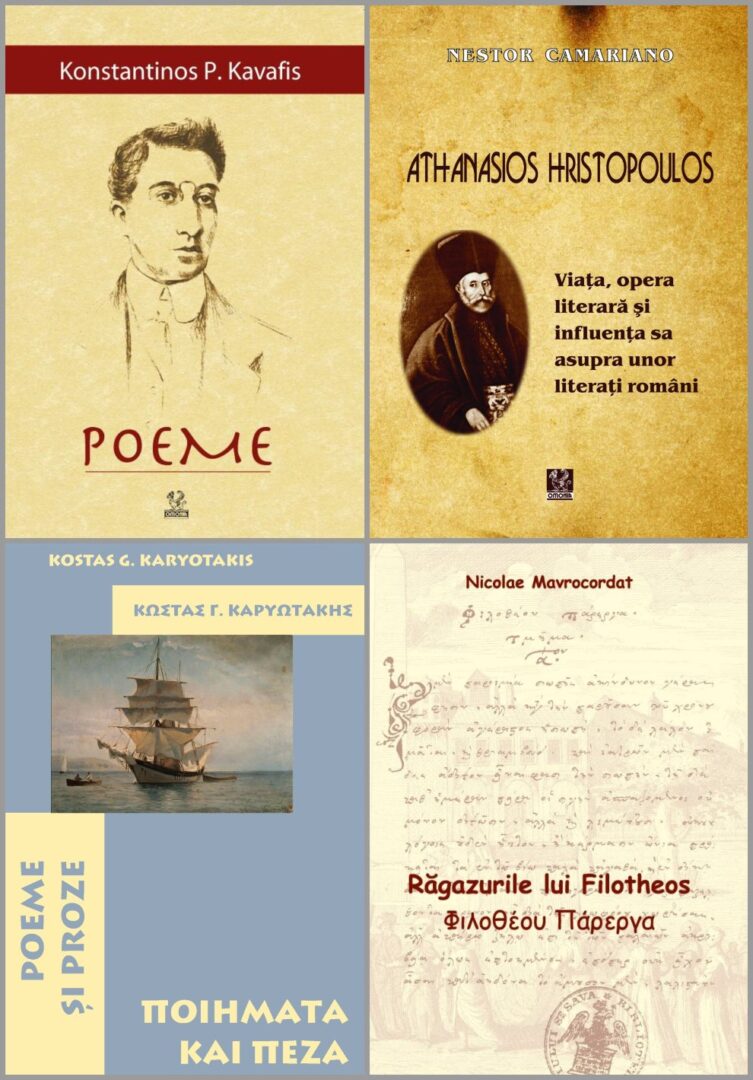
To what extent does translation and the promotion of a national literature beyond national borders has the potential to contribute to a closer understanding between two cultures? In this respect, could a publishing house act as a cultural ambassador between two countries?
The role of translation in bringing together two peoples and two cultures is undoubtedly pivotal; its crucial contribution to the dialogue and communication between cultures has been proven for centuries now. In Romania, more than 40% of the total publishing production refers to translations of all kinds from all corners of the world. Given that the orientation of the reader in the world of translated editions is becoming more difficult, the role of the publisher as a cultural ambassador will also be increasingly important. The role of large publishing houses is beyond question, but at the same time the contribution of small publishers specialized in a cultural and literary field is enlightening, facilitating orientation in the labyrinth of world literature.
*Interview by Athina Rossoglou
TAGS: LITERATURE & BOOKS | READING GREECE

